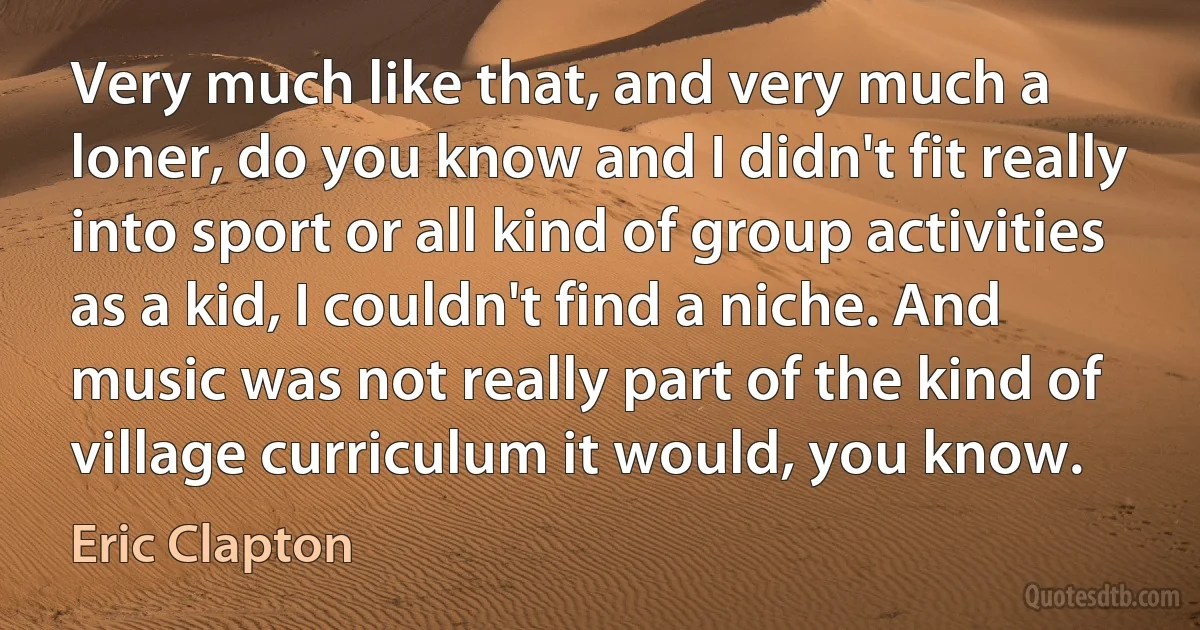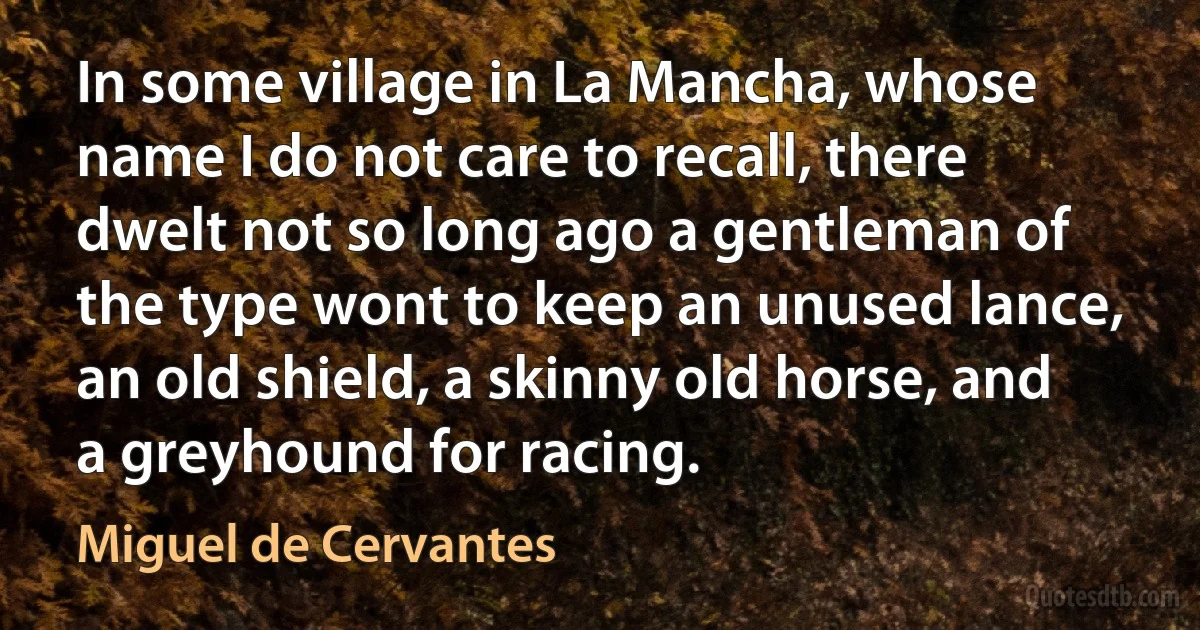Village Quotes - page 9
I was and still am her great admirer and fan. She signified to me the epitome of Indian grace and culture. She possessed in her the mischievous streak of that precocious village belle and the spirited movement of a Shiv Tandav. She looked vulnerable and lost, searching for protection in one moment, yet knowledged and mature in another. You felt like protecting and guarding her from all the evil of the world and to gently wipe away any frayed eyebrows that may have accumulated on her face. Her performances were pure and clean, without effort and deliberate design. They were just a part of her - simple and soft.

Waheeda Rehman
"Once upon a time, there was a boy. He lived in a village that no longer exists, in a house that no longer exists, on the edge of a field that no longer exists, where everything was discovered, and everything was possible. A stick could be a sword, a pebble could be a diamond, a tree, a castle. Once upon a time, there was a boy who lived in a house across the field, from a girl who no longer exists. They made up a thousand games. She was queen and he was king. In the autumn light her hair shone like a crown. They collected the world in small handfuls, and when the sky grew dark, and they parted with leaves in their hair.

Nicole Krauss
One of the most important components of such injunctions of the past that we have blindly carried on and which deserves to be thrown in the dustbins of history is the rigid caste system. This system has vivisected our Hindu society into so many micro-fragments, forever at war with one another. From temples, streets, houses, jobs, village councils, to institutions of law and legislature, it has only injected a spectre of eternal conflict between two Hindus; weakened our unity and resolve to stand united against any external threats. It is one of the biggest impediments in the conception of a Hindu Rashtra.

Vinayak Damodar Savarkar
The Religion that is afraid of science dishonours God and commits suicide. It acknowledges that it is not equal to the whole of truth, that it legislates, tyrannizes over a village of God's empires but is not the immutable universal law. Every influx of atheism, of skepticism is thus made useful as a mercury pill assaulting and removing a diseased religion and making way for truth.

Ralph Waldo Emerson
Hitler and all German people knew that the Israelis are not people who are working in the interest of the people of the world and that is why they burnt over six million Jews alive on the soil of Germany. The world should remember that the palestinians, with the assitance of Germany made the operation possible in the Olympic village.

Idi Amin
Answer me, sycophant, ought you not to have instructed me on one point at least, so essential to be known by a king; namely on the reciprocal duties between the sovereign and his subjects? Ought you not also to have foreseen that I might, at some future period, be compelled to contend with my brothers, sword in hand, for the crown, and for my very existence. Such, as you must well know, has been the fate of the children of almost every king of Hindustan. Did you ever instruct me in the art of war, how to besiege a town, or draw up an army in battle array? Happy for me that I consulted wiser heads than thine on these subjects! Go, withdraw to the village. Henceforth let no person know either who thou art, or what is become of thee.

Aurangzeb
Some of the very heroic and colourful figures in our history are sons of Sabaragamuwa - Parakramabahu I, born in Dedigama, the warrior King Rajasinghe I also known as Sitawaka Rajasingha, Edirille Rala born in Colombo and baptised Domingo Corea, who returned to the village of his ancestors Atulugama near Sitawaka and turned against the Portuguese.

Dominicus Corea
From May until August, I went on a search for Himmler. Finally, I gave myself up voluntarily in August 1945. I went from one village to another looking for Himmler in order to kill him. I also wanted to find my family, whose whereabouts I did not know. I didn't know what the future held in store for me. At that time, I thought it was certain that since I was an SS general, I would be taken prisoner and executed at once.

Erich von dem Bach
Out of the savage tribe grew up the barbarian village community; and a new, still wider, circle of social customs, habits, and institutions, numbers of which are still alive among ourselves, was developed under the principles of common possession of a given territory and common defence of it, under the jurisdiction of the village folkmote, and in the federation of villages belonging, or supposed to belong, to one stem. And when new requirements induced men to make a new start, they made it in the city, which represented a double network of territorial units (village communities) connected with guilds, these latter arising out of the common prosecution of a given art or craft, or for mutual support and defence.

Peter Kropotkin
I knew the Classics, but disliked them. What I enjoyed were the romances of Old China, and especially stories of rebellions. I read the Yo Fei Chuan, Shui Hu Chuan, Fan T'ang, San Kuo, and Hsi Yu Chi, while still very young, and despite the vigilance of my old teacher, who hated these outlawed books and called them wicked. I used to read them in school, covering them up with a Classic when the teacher walked past. So also did most of my schoolmates. We learned many of the stories almost by heart, and discussed and re-discussed them many times. We knew more of them than the old men of the village, who also loved them and used to exchange stories with us. I believe that perhaps I was much influenced by such books, read at an impressionable age.

Mao Zedong



